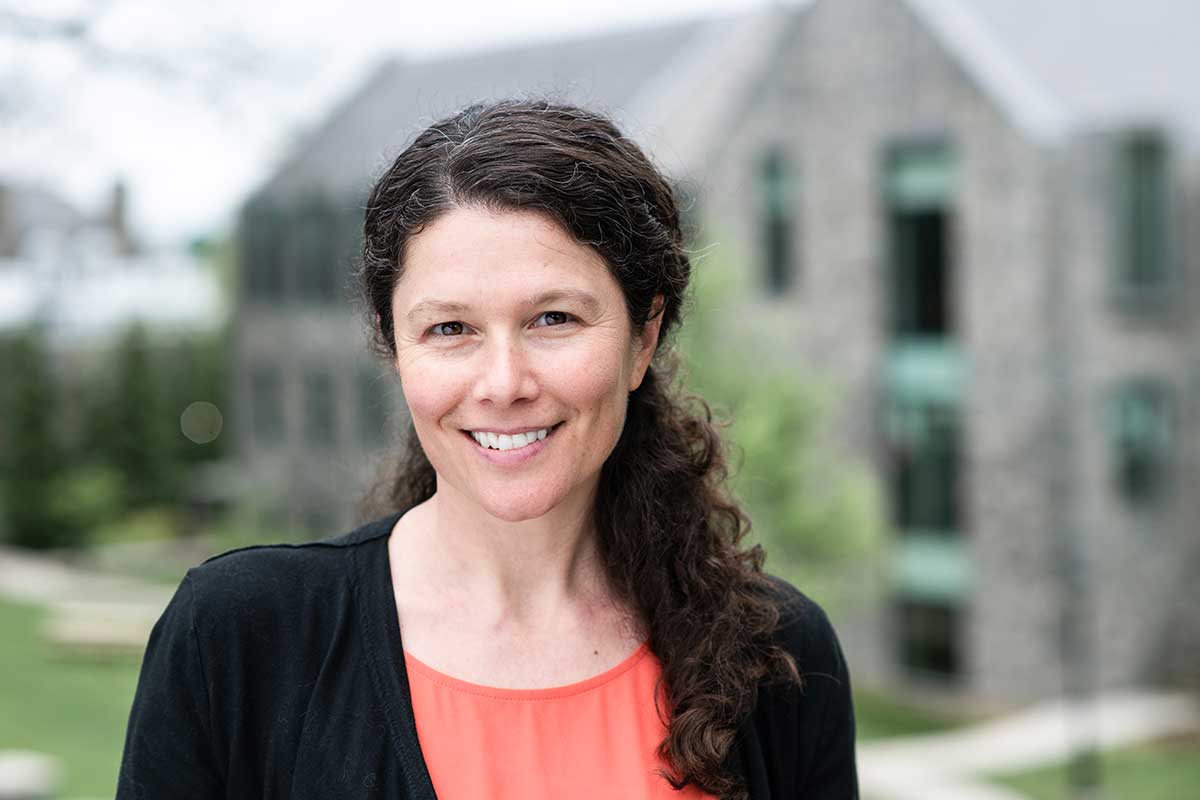Celebrating faculty: Dana Cuomo

What is the focus of your research/area of expertise?
I’m a feminist geographer by training, which means I’m interested in the relationship between space, scale, and power. I study institutional responses to domestic violence, including the policing response to domestic violence and how criminal and civil court systems address survivors’ experiences of coercive control and technology abuse (e.g., GPS tracking, account access, social media harassment). My most recent project is looking at how domestic violence abusers use guns to engage in nonlethal forms of firearm abuse. My projects are community-based, which means I incorporate local stakeholders like survivor advocates into the research process, including designing research objectives and collecting data. In addition to scholarly outputs like academic journal articles, I also produce training materials, whitepaper reports, and toolkits that convey research findings in a way that is useful to the community partners that I work with.
How do students benefit from your scholarship and research?
I co-direct (with Prof. Susan Hannan) the Gender-Based Violence (GBV) Research Lab, which is a feminist research and teaching lab that conducts interdisciplinary research projects that examine and address issues of GBV at Lafayette College. Each year, we train and mentor student research assistants in feminist and community-based research design, methods, and analysis. Our research assistants play a critical role in each stage of the lab’s projects, from drafting IRB proposals to collecting and analyzing data, presenting at conferences, and writing up findings and co-authoring publications. Beyond our research assistants, Lafayette students more broadly benefit from the research that we conduct in the lab, as the goals of our projects are to better understand students’ experiences of GBV on campus and use that insight to provide recommendations to College administration for how to create a safer campus community.
What will you be teaching in the fall?
This fall, I’m teaching WGS 260: Technologies of Violence and WGS 350: Intersectional Feminist Activism. WGS 260 addresses the connections between violence across intimate, state, and global scales, with a focus on discursive and digital technologies. For example, we look at how the military, police, and domestic violence abusers all use similar digital technologies (e.g., drones) to exert power and control. One of the goals of the class is to help students identify common logics of violence, such as patriarchy and masculinist protection, and how these logics operate across many aspects of society to justify the use of violence. WGS 350 introduces students to a variety of feminist activist approaches, including community organizing, activist philanthropy, art as activism, digital activism, and direct action. As part of the class, students organize an activist project to put into practice what they have learned throughout the semester. In previous course offerings, the class focused their activist projects on issues of accessibility on campus and the dean’s excuse process, the outcomes of which have gone on to contribute important insights to campus master planning and recent faculty discussions to improve the dean’s excuse system. I’m excited to see what issue this fall’s class decides to focus their activist project on.